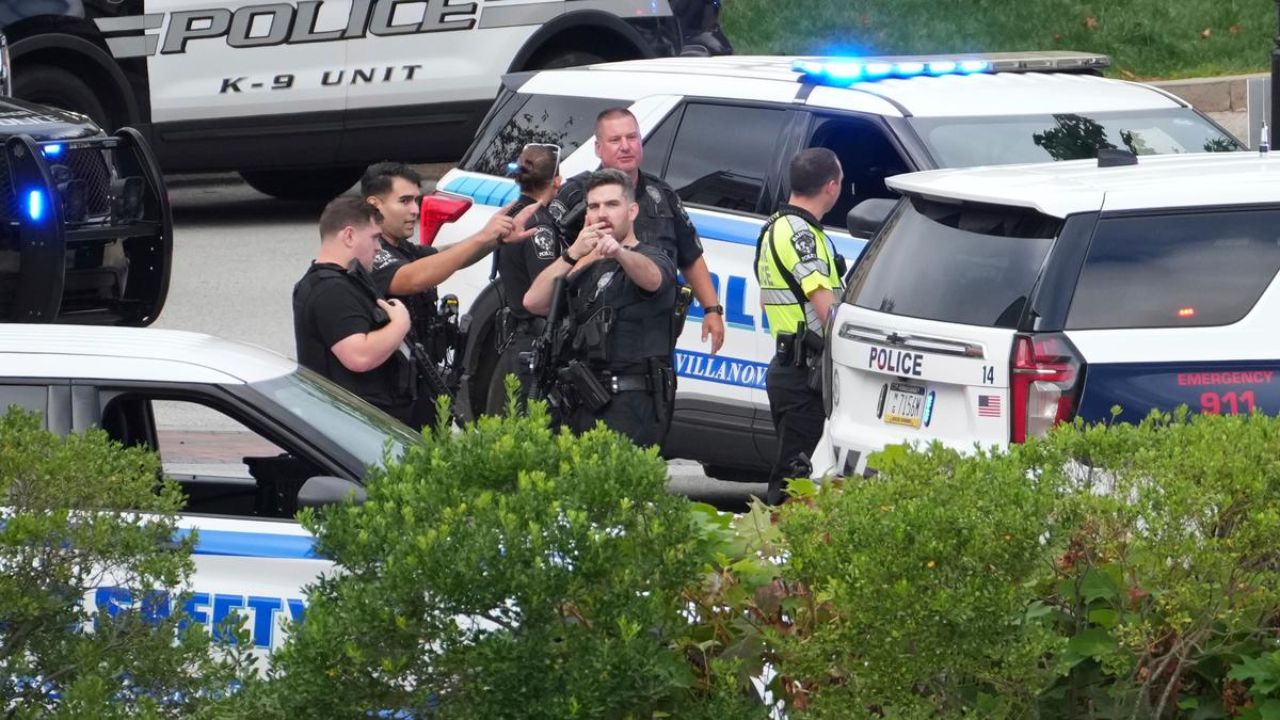
UAE and Yemen Strengthen Legal and Judicial Cooper
UAE and Yemen attorney generals met in Abu Dhabi to strengthen legal ties, enhance public prosecutio

Photo:AP
Two major U.S. universities faced frightening false alarms that disrupted campus life, caused panic, and forced emergency lockdowns. The incidents occurred at Villanova University in Pennsylvania and the University of Tennessee at Chattanooga, sparking fear among students, parents, and staff.
University of Tennessee at Chattanooga – Morning Panic
The first incident happened at the University of Tennessee at Chattanooga. Around noon, the university sent urgent messages to students and faculty reporting a possible active shooter in the campus library and University Centre. Students were instructed to “Run. Hide. Fight” and stay in secure areas until further notice.
Law enforcement, including local police, fire crews, and even federal authorities, responded immediately. Officers quickly searched the campus, going building by building. After a thorough inspection and no evidence of a threat, officials lifted the lockdown within an hour.
Although no one was injured, the event caused widespread fear. Many students described being trapped in classrooms or libraries, uncertain whether the threat was real. University officials later confirmed it was a false alarm, emphasizing the importance of staying calm but following emergency instructions.
Villanova University – Afternoon Scare
Later that day, a more dramatic incident occurred at Villanova University in Pennsylvania, a private Catholic institution known for its strong academic reputation and as the alma mater of the newly elected Pope Leo XIV.
At approximately 4:30 p.m., a 911 call reported an active shooter in the law school building, claiming that at least one person had been shot. Students and staff received alerts telling them to lock doors, barricade themselves, and stay in place. The university was also hosting orientation events for new students, which made the timing particularly disruptive.
The campus immediately went into lockdown. Local police, Delaware County authorities, and emergency responders arrived within minutes. Officers combed the campus building by building, conducting thorough searches. Some law enforcement officials initially believed there could be a real threat, which added to the tension.
Families on campus were alarmed. One mother, Courtenay Harris Bond, described the experience as a “really tough way to start freshman year”, explaining that she and her family were trapped in a bookstore with other students for safety until the all-clear was given.
By late afternoon, authorities confirmed that the report was a hoax. No shooter was present, and no injuries occurred. The university president described the event as a “cruel interruption” to what should have been a joyful day of welcoming new students.
Investigations and Reactions
The Delaware County District Attorney announced a full investigation into the false call, stating that such hoaxes are serious crimes. They not only create panic but also waste police resources and put lives at risk. He emphasized that authorities are committed to identifying and prosecuting anyone responsible.
Officials and experts also highlighted the emotional toll on students and parents. Parents sending children to college for the first time faced the nightmare of receiving alerts about a potential shooter, while students had to experience fear instead of the excitement of orientation.
Security measures at both universities were re-evaluated after these incidents. Schools reiterated the importance of alert systems, emergency protocols, and quick police response in preventing harm during potential real emergencies.
Broader Context
These incidents are part of a larger trend in the United States where false reports of violence on campuses are increasing. Even when threats turn out to be fake, the psychological impact on students, staff, and families is substantial. Emergency preparedness, mental health support, and effective communication are key to reducing panic during such events.
Villanova University, located in the Philadelphia suburbs, borders the wealthy Main Line neighborhoods of Lower Merion and Radnor Townships. The university attracts students from across the country and globally, and this false alarm disrupted what is typically a festive start to the academic year.
The University of Tennessee at Chattanooga, a public research university, also faced similar panic, showing that both private and public institutions are vulnerable to hoax reports. These events highlight the need for vigilance and strong campus security measures nationwide.
While both incidents were confirmed as hoaxes, the fear, chaos, and emotional stress caused are very real. Universities are now focusing on how to prevent and respond to false alarms, while ensuring students, parents, and staff remain safe. Students starting their college journey are learning an unfortunate lesson about the realities of campus security in today’s world.